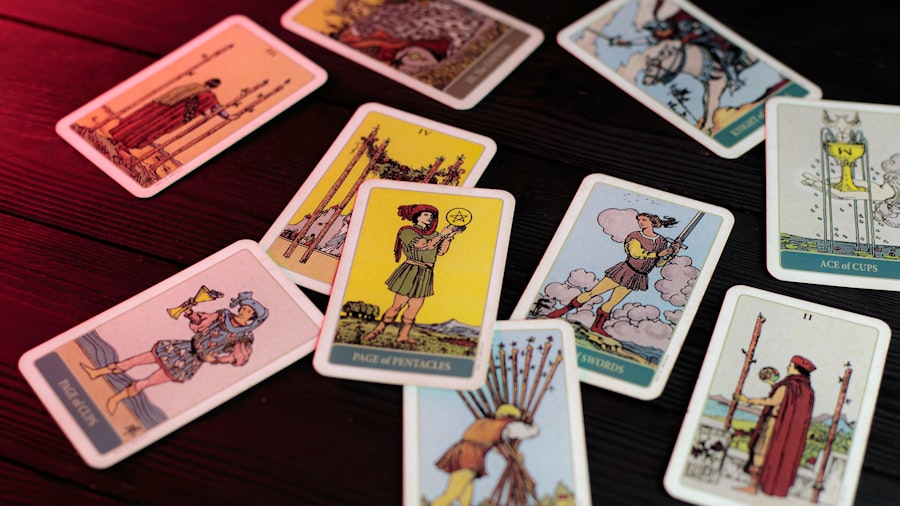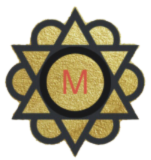
The origins of tarot cards can be traced back to the 15th century in Europe, where they were initially created as a card game known as tarocchi. This game was played among the nobility and was not associated with divination or mystical practices. The earliest known tarot decks, such as the Visconti-Sforza deck, were hand-painted and featured intricate designs that reflected the artistic styles of the time.
These decks were composed of four suits, similar to modern playing cards, and included a set of trumps that would later evolve into the Major Arcana. As the centuries progressed, tarot cards began to take on a more esoteric significance. By the late 18th century, scholars and mystics started to associate tarot with ancient wisdom and spiritual insight.
The publication of “Le Monde Primitif” by Antoine Court de Gébelin in 1781 marked a pivotal moment in the history of tarot, as it proposed that the cards were derived from ancient Egyptian hieroglyphs and contained hidden knowledge.
Key Takeaways
- Tarot cards have a rich history dating back to the 15th century, originating as playing cards in Europe before evolving into a tool for divination and self-reflection.
- Common myths surrounding tarot cards include the belief that they are solely used for fortune-telling and that they are associated with dark magic or evil forces.
- Misconceptions about tarot card readings include the idea that they can predict the future with absolute certainty and that they are only for those who believe in the supernatural.
- In modern society, tarot cards are used for a variety of purposes, including self-discovery, personal growth, and gaining insight into complex situations.
- Debunking stereotypes about tarot card readers involves challenging the idea that they are all frauds or charlatans, and recognizing that many are skilled professionals who provide valuable guidance and support.
- The true purpose of tarot cards is to serve as a tool for introspection, self-awareness, and gaining a deeper understanding of oneself and the world around us.
Common Myths Surrounding Tarot Cards
One prevalent myth about tarot cards is that they are inherently linked to dark magic or occult practices. This misconception often stems from their association with fortune-telling and the mystical aura that surrounds them. Many people believe that tarot cards can predict the future with absolute certainty or that they are tools used by witches or practitioners of black magic.
In reality, tarot is a complex system that serves as a mirror for self-reflection and personal insight rather than a means to foretell specific events. Another common myth is that tarot readings are only for those who possess special psychic abilities. This notion perpetuates the idea that only a select few can interpret the cards effectively.
In truth, anyone can learn to read tarot cards with practice and dedication. The cards themselves are not magical; rather, they serve as a catalyst for intuition and introspection. Many readers emphasize that their interpretations are influenced by their own experiences and insights, making each reading a unique collaboration between the reader and the querent.
Misconceptions about Tarot Card Readings

A significant misconception about tarot card readings is that they provide definitive answers to life’s questions. Many individuals approach tarot with the expectation that the cards will deliver clear-cut solutions or predictions about their future. However, tarot readings are more about exploring possibilities and gaining insights into one’s current situation rather than providing absolute answers.
The cards can highlight potential paths and outcomes based on the querent’s current circumstances, but they do not dictate a fixed future. Additionally, there is a belief that tarot readings are solely focused on love and relationships. While these themes are common in many readings, tarot is a versatile tool that can address a wide range of topics, including career, personal growth, health, and spirituality.
A skilled reader can tailor their approach to suit the querent’s specific needs, allowing for a more comprehensive exploration of various aspects of life. This flexibility is one of the reasons why tarot has remained relevant in contemporary society.
The Role of Tarot Cards in Modern Society
In today’s fast-paced world, many individuals turn to tarot cards as a means of self-discovery and personal empowerment. The practice has evolved beyond its historical roots, becoming a popular tool for introspection and guidance. People from diverse backgrounds utilize tarot to navigate life’s challenges, gain clarity on their goals, and foster a deeper understanding of themselves.
This shift reflects a growing interest in holistic approaches to well-being and self-care. Moreover, tarot has found its place in popular culture, appearing in literature, film, and art. The imagery of tarot cards often captivates audiences, serving as a symbol of mystery and exploration.
Social media platforms have also played a significant role in popularizing tarot readings, with many readers sharing their insights online and creating communities centered around this practice. This accessibility has demystified tarot for many, allowing individuals to engage with it on their own terms.
Debunking Stereotypes about Tarot Card Readers
Tarot card readers are often subjected to stereotypes that paint them as eccentric or mystical figures shrouded in secrecy. This portrayal can lead to misunderstandings about the nature of their work and the skills they possess. In reality, many tarot readers approach their practice with professionalism and integrity, utilizing their knowledge of symbolism, psychology, and intuition to provide meaningful insights to their clients.
They often engage in ongoing education to deepen their understanding of the cards and enhance their reading techniques. Furthermore, there is a stereotype that all tarot readers claim to possess supernatural abilities or psychic powers.
Instead, they focus on their ability to interpret the cards and facilitate conversations that encourage self-reflection. This distinction is crucial in understanding the diverse approaches within the tarot community and recognizing that effective readings stem from skillful interpretation rather than mystical prowess.
Understanding the True Purpose of Tarot Cards

The true purpose of tarot cards extends far beyond mere fortune-telling; they serve as a powerful tool for self-exploration and personal growth. At their core, tarot cards are designed to facilitate introspection by prompting individuals to reflect on their thoughts, feelings, and experiences. Each card carries rich symbolism that can resonate with different aspects of life, allowing users to gain insights into their current situations and potential paths forward.
In addition to fostering self-awareness, tarot can also serve as a means of connecting with one’s intuition. Many readers emphasize the importance of intuition in interpreting the cards, encouraging querents to trust their instincts during readings. This process can empower individuals to take ownership of their decisions and embrace their unique journeys.
Ultimately, tarot is not about predicting an unchangeable future but rather about illuminating possibilities and encouraging personal agency in navigating life’s complexities.
If you are interested in exploring the world of numerology further, you may want to check out the article Understanding Numerology for Mobile Numbers. This article delves into the significance of numbers in our everyday lives and how they can provide insight into our personalities and destinies. Just like tarot cards, numerology offers a unique way to gain self-awareness and spiritual guidance.
FAQs
What are tarot cards?
Tarot cards are a deck of 78 cards that are often used for divination, spiritual guidance, and self-reflection. The deck is divided into two main sections: the Major Arcana and the Minor Arcana.
Are tarot cards associated with fortune-telling?
While tarot cards are often used for fortune-telling, their primary purpose is to provide insight and guidance for personal growth and self-reflection. They are not inherently magical or supernatural, but rather a tool for introspection and self-discovery.
Do tarot cards have to be gifted to be effective?
There is no evidence to support the belief that tarot cards must be gifted in order to be effective. Anyone can purchase their own deck of tarot cards and use them for personal or professional purposes.
Are tarot cards associated with dark or evil forces?
There is no inherent connection between tarot cards and dark or evil forces. The interpretation and use of tarot cards are based on personal beliefs and intentions. Many people use tarot cards as a tool for positive self-reflection and personal growth.
Can tarot cards predict the future?
While tarot cards are often used for divination and predicting future events, their primary purpose is to provide guidance and insight rather than predict specific outcomes. The interpretation of tarot cards is subjective and can vary depending on the reader and the context of the reading.






